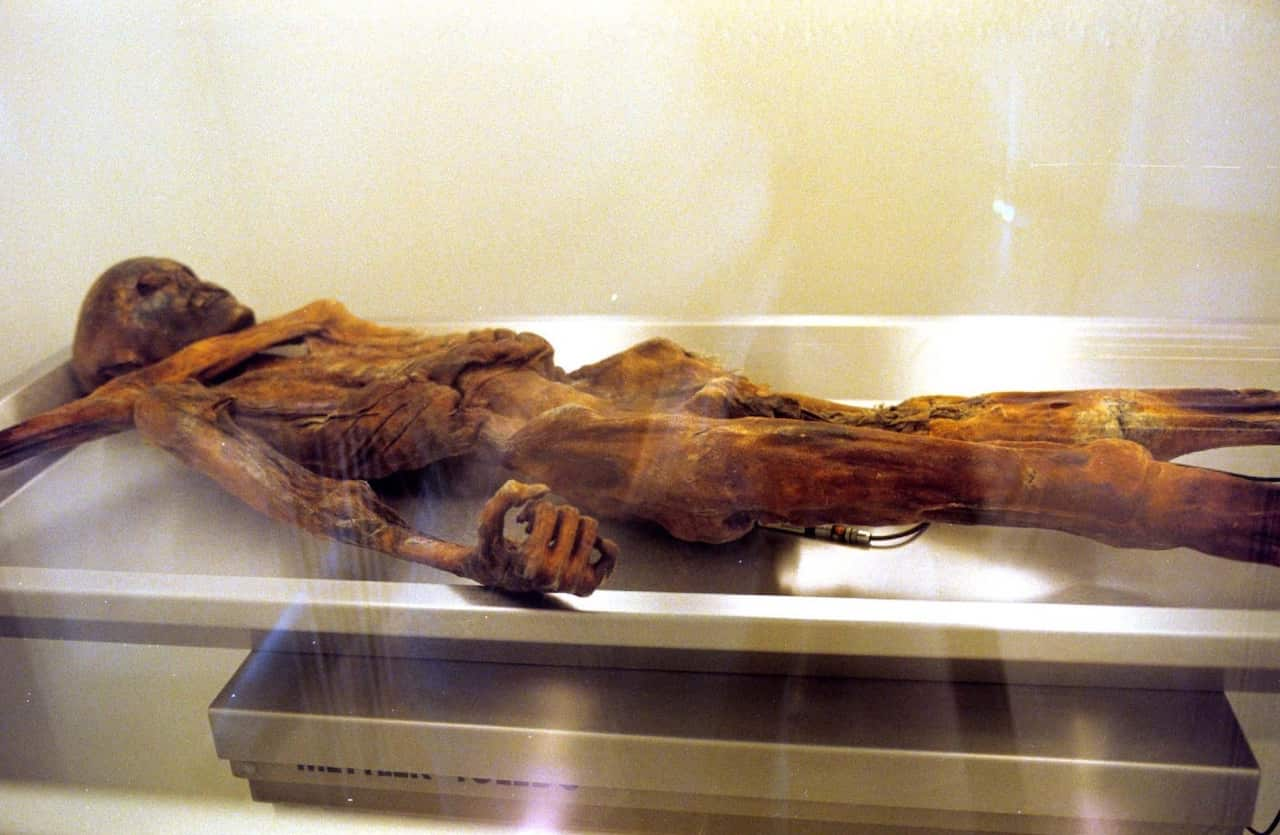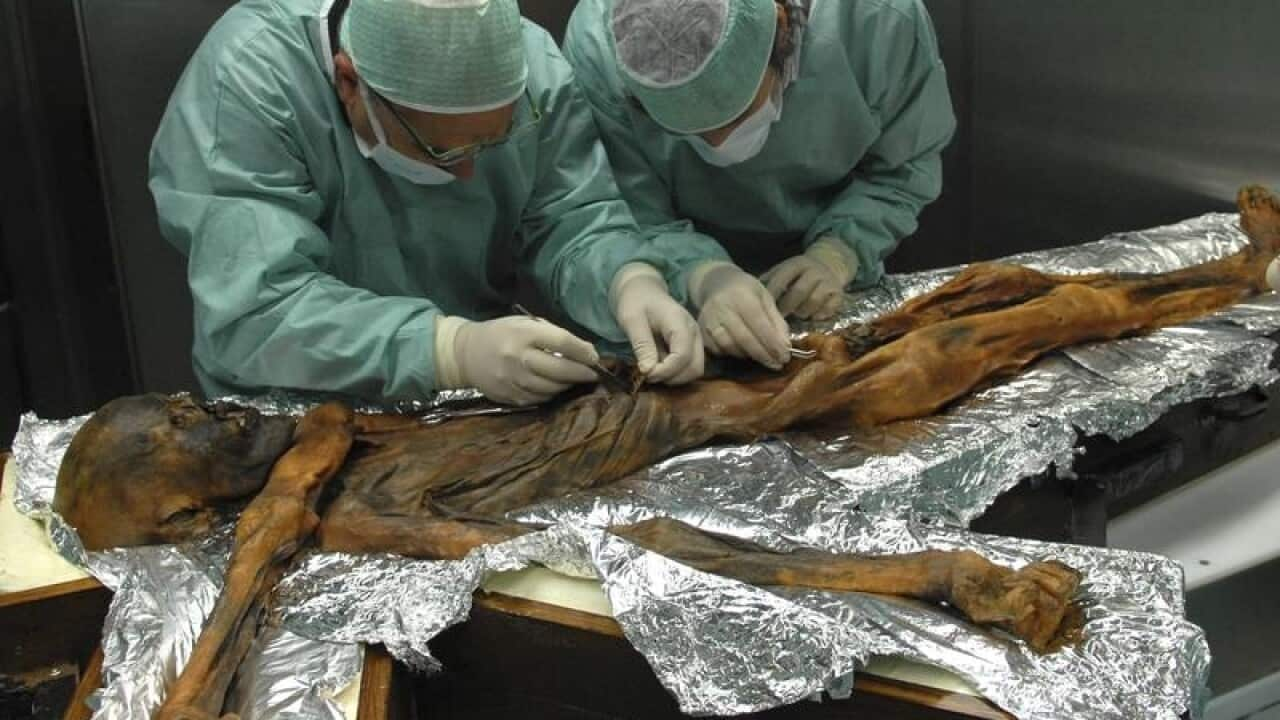More than 5300 years after he died, scientists have worked out what the world's most famous ice mummy ate for his last meal.
An Australian scientist was among the team of 41 researchers from around the globe who analysed well-preserved compact pieces of food in the stomach of the mummy known as Otzi, whose frozen remains were found in the Italian Alps in 1991.
Their study found Otzi's final meal was high in fat, with traces of red deer and ibex - a type of wild goat - in his stomach along with einkorn wheat and a type of toxic fern.
Nearly half his stomach contents were fat, quite possibly from having eaten ibex, which could have been smoked before Otzi ate it, given that charcoal particles were also in his stomach.

Otzi's high-fat diet could have contributed to him having developed hardened arteries, something that was discovered during a previous study of his remains.
The scientists were initially surprised by the amount of fat in Otzi's stomach, but say it makes sense given he lived in a cold and high-altitude environment where high-fat foods would have been a valuable source of extra calories to help him survive.
More puzzling though was the presence of toxic bracken, which the scientists suspect Otzi used either to wrap food in to eat or as a herbal medicine to help ease tummy pain possibly caused by parasites in his gut.
Philip Doble, a professor of analytical chemistry at the University of Technology Sydney, was one of the scientists who analysed Otzi's stomach contents and discovered traces of iron, calcuim, zinc, magnesium and sodium along with manganese and copper.
One gram of the stomach contents was sent to him in Sydney from the South Tyrol Museum of Archaeology in Italy, where Otzi resides in a frozen state.
Previous tests on Otzi's remains revealed he was 45 when he was murdered, with an arrowhead having pierced his left shoulder, causing him to bleed to death.
When he died his stomach was full of food, meaning he probably ate shortly after he was attacked or was eating when the arrow hit.
Prof Doble said the study of Otzi's stomach provides a rare glimpse into the daily diet of people during the Copper Age, a time when humans were transitioning from hunter-gatherers to farmers.
His last meal was well balanced with no evidence of heavy metals, indicating he lived in a pristine environment at at time when Europeans were beginning to extract metals from rock to make tools.
"Perhaps his diet indicates that people were beginning to have more leisure time then," Prof Doble told AAP.
"Not having to collect your food gives you opportunities to do other things such as learn how to make metals, to build houses, art and culture etc.
"So it has all sorts of implications for the beginnings of civilisation. That's why it's so exciting because it gives you a window into the past."

